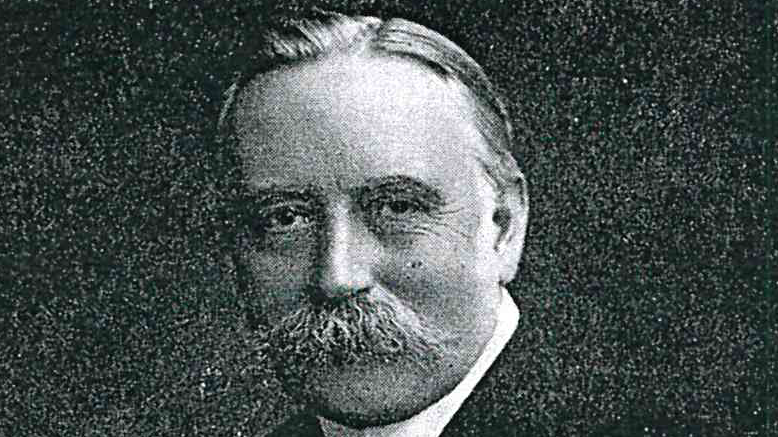“Aut Christus aut nullus”: The witness of Hugh D. Brown[1]
It would have been in the late 1880s, when the ministry of C.H. Spurgeon was drawing to a close, that a Dubliner by the name of Hugh Dunlop Brown (1858–1918) attended worship at Spurgeon’s Tabernacle with a few thousand other men and women and children. As Spurgeon came to preach he caught sight of Brown in the congregation and immediately exclaimed, “I see my friend Brown from Dublin; will he please come round and help me.”[2] One can well imagine that it was a rare occasion for Spurgeon to invite a man out of the vast audiences that attended on his preaching to help him in the pulpit. But then Hugh Brown was a remarkable man, though I dare say his name has been forgotten a little over a century since his stepping into heaven.
Material wealth & spiritual riches
Hugh Brown came from wealth. His father, also Hugh Brown (d.1882), had founded the department store now known as Brown Thomas with a James Thomas in 1848 on Grafton Street in Dublin. The wealth that accrued to him enabled him to raise his family in comfort. Such wealth has proven to be a snare to many, but Hugh Brown and his wife Marianne (d.1912) were evangelical Christians, faithful members of the Church of Ireland, and sought to use their wealth for the advance of God’s kingdom.
For instance, when their son became the pastor of the Baptist congregation that met in Lower Abbey Street, Dublin, and whose origins stretched back to the seventeenth century, it soon became evident to Hugh Dunlop Brown that the church needed a new building. His widowed mother, Marianne, generously paid for the entire cost of the new building on Harcourt Street, which was between seven and eight thousand pounds, a huge sum in those days.[3]
The auditorium of the new church could seat up to a thousand people. To the amazement of many in Dublin, and even to the thirty-eight men and women who were the members of the church when it moved to Harcourt Street in 1887, hundreds soon came to hear the young preacher in his mid-twenties. By the close of 1887, the membership of the church had increased to 135, and seven years later, it stood at 380. Seventeen years later, in 1904, the membership was over 400, where it remained to the end of Brown’s ministry in 1914.[4]
Witness to the Word
Brown’s friendship with Spurgeon through the desperate days of the Downgrade Controversy over the Scriptures in the 1880s was rooted, in part, in a shared conviction of the necessity of upholding the verbal, plenary inspiration of the Bible. A dozen years after Spurgeon’s death, Brown published a book on this key subject. As he noted:
Beyond all doubt, the great battle of the twentieth century must rage around the Inspiration of the Word of God. Has the Almighty really spoken to erring mortals? Or are we mere derelicts, tossed to and fro upon the ocean of life’s enigmas, without a chart or compass? Beside this issue, all other questions, how ever important, dwarf into comparative insignificance. For if the Bible goes, all vanishes; our preaching is vain, our faith is also vain, we are yet in our sins.[5]
Patent throughout the book, which runs to nearly 400 pages, is Brown’s conviction that the embrace of views that undermine confidence in the divine authorship of the Scriptures is a direct rejection of the authority of Christ, who “never fails to express unstaggering belief” in the Old Testament.[6] To accept any other view, Brown asserted, is to cast
a direct vote of censure upon the claims and utterances of our Divine Redeemer Himself. “Aut Christus aut nullus”[7] must therefore in the present conflict be the war-cry and rallying-point of all those who love our Lord Jesus Christ in sincerity and truth.[8]
[1] For a small biography of Brown, see L[ouis] E. Deens, Man of Stature: Hugh D. Brown, Baptist Leader in Ireland 1884–1914 (Belfast: Baptist Union of Ireland, 1968).
[2] [Louis E. Deens,] “C.H.S. and H.D.B.: Gleanings from an Old Scrap Book,” The Irish Baptist (April 1934): 14.
[3] Deens, Man of Stature, 7.
[4] Deens, Man of Stature, 10.
[5] Hugh D. Brown, God’s Witness to His Word: A Study of the Self-Witness of the Holy Spirit to His Own Writings (London: Hodder and Stoughton, 1904), 2.
[6] Brown, God’s Witness to His Word, 122
[7] Latin for “either Christ or nothing.”
[8] Brown, God’s Witness to His Word, ix.

Born in England of Irish and Kurdish parents, Michael A.G. Haykin serves as professor of church history & biblical spirituality. Haykin has a B.A. in Philosophy from the University of Toronto (1974), a Master of Religion from Wycliffe College, the University of Toronto (1977), and a Th.D. in Church History from Wycliffe College and the University of Toronto (1982). Haykin and his wife, Alison, have two grown children: Victoria and Nigel.
He is the author of a number of books, including The Spirit of God: The Exegesis of 1 and 2 Corinthians in the Pneumatomachian Controversy of the Fourth Century (E. J. Brill, 1994); One heart and one soul: John Sutcliff of Olney, his friends, and his times (Evangelical Press, 1994); Kiffin, Knollys and Keach: Rediscovering Our English Baptist Heritage (Reformation Today Trust, 1996); ‘At the Pure Fountain of Thy Word’: Andrew Fuller as an Apologist (Paternoster Press, 2004); Jonathan Edwards: The Holy Spirit in Revival (Evangelical Press, 2005); The God who draws near: An introduction to biblical spirituality (Evangelical Press, 2007).
Course taught for CBTS: Biblical Spirituality.





